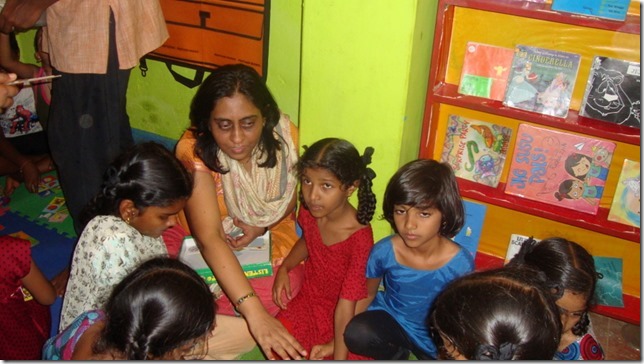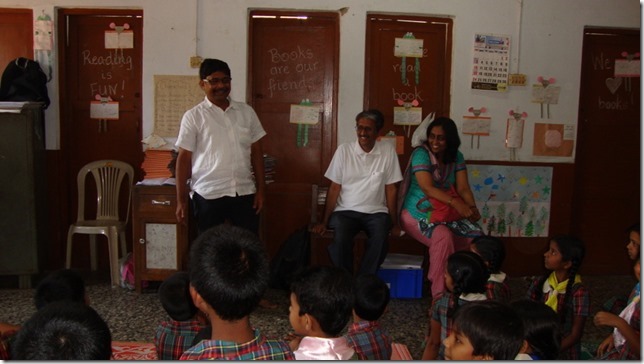Mid March and Bookworm had visitors. 5 people from QUEST an organisation that works with learning improvement in Thane Dt of Maharashtra visited Bookworm. It always is a powerful reminder that the work we are doing in our small patch of earth is important enough for people to come and observe and learn from. We welcome such observations and visits as these also inform us and reinforce our work and strengthen it .
Nilesh Nimkar the Director of QUEST spent a fair bit of time, sharing his insights with the BW team at the end of the visit and across the team we felt we had so much to learn , to do and to grow towards. Our quest is far from done, but we hope that observing some of our work in schools and MOP sites, helped QUEST in their own quest ! Given below are some brief learnings from the QUEST team which we will reflect upon in the academic year to come.
Commendable:
The spirit and passion with which we do our work. The energy of the ‘young’ team was commented on repeatedly ,much to Sheena’s delight!
There was acknowledgement that this work is being done with no outside compulsion or drive but just a team vision
Collection of books were unimaginable. They had never seen such a rich and wide collection of children’s books anywhere
Felt that the climate in goa ( in relation to literacy) was right for work like ours and therefore well placed
Lending process of the program is perfect and will be copied by them directly and shamelessly
Of the 2 programs observed MOP was the more successful and valued program where we have autonomy of time, give attention to children, small numbers, more appropriate pedagogy to both literacy and literature. etc
Areas for reflection:
Timing in the classroom is limited, expends huge amounts of energy and may not be producing equivalent response
Consider consolidating and organising work differently so that you do fewer schools but more in-depth and focussed and with more time in every school
Classroom management is a crises in the City schools. Suggested an alternative approach to classroom techniques. Less hyper , active class in the city to tone down visible aggression and chaos and the usual excitable LiS way in the quieter village schools.
Lesson plans need to be reviewed and stepped up. It was observed that the Lesson plans do not address the cognitive levels of the higher grades and therefore team thinking on this aspect is required. Addressing children’s development level and not just the literacy level.
Suggested that RP continues to talk in English and allow children to use their own language to express themselves. The total translation of LP is not needed as it might be a way for children to not begin to grow their own comprehension of the target language
Use of ‘lower’ level books with higher grades was a weak idea
The RP switching across grades was considered ‘weak’ as it is hard on the RP and the skills are not there to move one day from grade 3 to grade 6 on another day and therefore suggested that RP are used grade levels for a term or so before switching
Lesson Planning should be done at 2 levels – primary and upper primary so that developmental needs will be met
Writing component of the program needs to be examined. It appears limited. Children should be given free writing opportunities and irrespective of structure and spelling encouraged to write. Key vocabulary can be used and they can be encouraged to write their own stories with this vocabulary and one should accept blank work until they understand that anything is acceptable.
Training Modules should be documented and written up for other training programs and to also ensure some sustainable method that can be scaled should the opportunity arise


